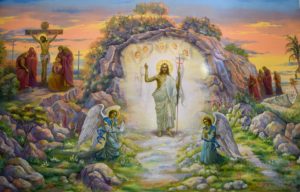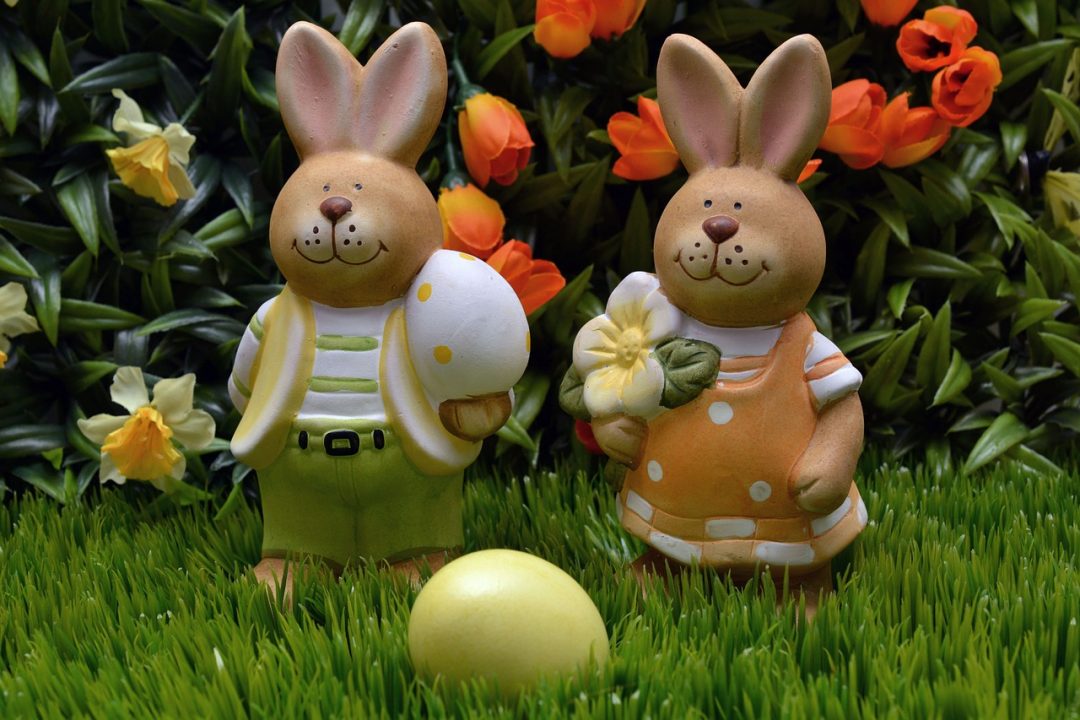Easter may bring one of several images to mind. The image of Christ resurrected to atone for our sins, a bouquet of lovely lilies, or a man dressed in a giant grinning bunny suit. Maybe the modern multitasking mind can see all three at once. Add to that a lovely dinner of ham, died eggs being hunted, and chocolate ones stuffed with marshmallows, and you have the incredibly complex combination of religious and secular customs that we know as Easter.
The reason Easter does not fall on the same date every year is that it falls on the first Sunday after the March or vernal equinox. If this vernal, or Spring, equinox, falls on Sunday, Easter will occur on the following Sunday so that it will not coincide with Passover. This connection to the changing from winter to spring brings to mind the pagan roots of the Spring Holiday, in which feasting, drinking, and sexual excess was encouraged. (although Mardi Gras is indeed a Catholic Holiday that precedes Lent, shades of this pagan excess are certainly visible in the Carnival atmosphere)
Christian holidays and the pagan holidays.
When missionaries came to a new area with the Word of God, they were able to make these teachings more palatable by incorporating Christian holidays into the pagan holidays. The spring celebrations of the pagans were to mark an end of the death caused by winter and to celebrate new birth in the fields, the pastures, the woods, and the people. This is why eggs are used to celebrate Easter. People celebrating Easter today are not necessary pagans, and they may indeed be Christians, even. They are just very ingrained in the public mindset. Just as pagans and secularists celebrate rebirth in Spring, Christians celebrate a deeper kind of rebirth in the gift of life everlasting through Christ’s sacrifice.
 Some might argue that Mardi Gras is no longer a religious holiday or only a Catholic Holiday. Mardi Gras does have it’s rooted in the early pagan holidays. As witnessed by the weeks’ longs festival’s true name (carnival) it is a holiday of excess. The root word of Carnival is Carne or meat, and the meaning of the holiday was to consume as much meat as one could, sexually and eating it) before Lent began on Ash Wednesday. Naturally, Meat was not the only thing participants tried to consume, but everything they wanted, alcohol especially. Mardi Gras Translates to “Fat Tuesday”, it is the last day of the carnival, or the day before the first day of Lent, “Ash Wednesday“. Ash Wednesday, of course, begins Lent, or forty days of fasting, or giving up at least one thing that will be dearly missed by the petitioner.
Some might argue that Mardi Gras is no longer a religious holiday or only a Catholic Holiday. Mardi Gras does have it’s rooted in the early pagan holidays. As witnessed by the weeks’ longs festival’s true name (carnival) it is a holiday of excess. The root word of Carnival is Carne or meat, and the meaning of the holiday was to consume as much meat as one could, sexually and eating it) before Lent began on Ash Wednesday. Naturally, Meat was not the only thing participants tried to consume, but everything they wanted, alcohol especially. Mardi Gras Translates to “Fat Tuesday”, it is the last day of the carnival, or the day before the first day of Lent, “Ash Wednesday“. Ash Wednesday, of course, begins Lent, or forty days of fasting, or giving up at least one thing that will be dearly missed by the petitioner.
Some Christians do not like the idea that sacred religious holidays may have been “tacked on” to existing pagan holidays. They may feel that people who claim that Christ was not crucified on the first Friday after the vernal equinox is somehow saying that his crucifixion is less than true and real. We cannot prove these dates, maybe God worked His will with existing pagan holidays, but whatever the date, it shouldn’t lessen anyone’s faith.






